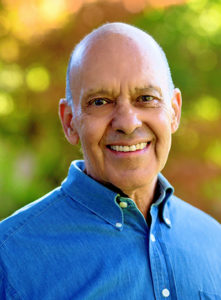
An unfortunate fact that I’ve observed in over thirty years of naturopathic practice is that complementary medicine practitioners can be tempted to give medical advice outside the boundaries of their actual knowledge and experience (and often beyond legal boundaries).
Some examples:
- A patient of ours was told by a nutritionist that she had a thyroid condition, yet her lab tests indicated a perfectly functioning thyroid, with no symptoms of clinical thyroid dysfunction.
- A patient visited a “medical intuitive” who diagnosed liver disease, even though her signs, symptoms, and lab tests were negative for any liver conditions.
- A chiropractor prescribed hundreds of dollars of supplements for conditions he had diagnosed with muscle testing, but which were subsequently proven not to exist.
How can we know which providers will give us advice we can trust? Let’s look at the scope of some popular complementary practices. I hope the following brief discussion will help you choose practitioners who are operating well within the boundaries of their actual experience and expertise.

Nutritionist/Dietician. The National Association of Nutrition Professionals states: “A Nutrition Professional advises individuals, families and groups on how to improve diet, lifestyle and attitude to promote optimal health.”
That’s all. Yet it doesn’t take an exhaustive Google search to find self-declared nutritionists sharing opinions based on little more than hearsay.
The Association adds that a nutritionist “does not practice medical nutrition, diagnose, treat, cure or prevent disease, make unproven health claims, misrepresent training, use unproven devices, assessments or therapies or use network marketing or product sales in lieu of individual client education.”
My advice: choose a nutritionist/dietician who’s transparently open about his or her practices and can back his or her theories with credible data.
Chiropractic. This is tricky. Although chiropractic doctors enjoy a wide scope of practice that allows them to cross over into areas normally served by naturopathic physicians or primary care providers, their actual training is not focused in these areas and may therefore be suspect.
According to the International Chiropractic Association:
“The science of chiropractic deals with the relationship between the articulations of the skeleton and the nervous system, and the role of this relationship in the restoration and maintenance of health. Of primary concern to chiropractic are abnormalities of structure or function of the vertebral column known clinically as the vertebral subluxation complex. The subluxation complex includes any alteration of the biomechanical and physiological dynamics of contiguous spinal structures which can cause neuronal disturbances.”
Despite these clear and sensible guidelines, chiropractic associations have lobbied hard to change the licensing laws in ways that they feel will not only further establish their medical legitimacy, but will expand the scope of their practice into the realm of naturopathic physicians and medical doctors.
The truth is that while many chiropractors have risen to the challenge of educating themselves about the disciplines in which they claim expertise, most have not. They simply don’t have the depth of training in biochemistry and differential diagnosis that MDs and NDs have.
When in doubt, ask yourself – whom would you trust to diagnose a metabolic or chronic illness and prescribe a treatment plan: a chiropractor, an MD, or an ND?
Most chiropractors should stick to their primary field of emphasis as defined by the International Chiropractic Assocation. It’s what they do better than other professions.
I use chiropractic exclusively for musculoskeletal complaints. I’m open to hearing what my chiropractor might want to tell me about other matters, but as the saying goes, I won’t allow myself to be so open-minded that my brains fall out.
Acupuncture/Oriental Medicine. Acupuncture is a medical system complete in itself, with little relation to our familiar Western (conventional, naturopathic, chiropractic) areas of practice.
Yet “deficient kidney chi” does not mean that anything is wrong with a person’s kidneys. There’s a hazy grey area of Oriental medical diagnosis and treatment that has spilled over into conventional medical practice, which I confess I don’t understand very well.
The World Health Organization tells us that acupuncture has been proven effective for treating cases of high and low blood pressure, chemotherapy-induced nausea and vomiting, some gastric conditions (including peptic ulcer), painful periods, dysentery, allergic rhinitis, facial pain, morning sickness, rheumatoid arthritis, sprains, tennis elbow, sciatica, dental pain, and for reducing the risk of stroke and inducing labor.
Other conditions for which WHO says acupuncture may help but for which more evidence is needed include fibromyalgia, neuralgia, post-operative convalescence, substance abuse, vascular dementia, pertussis, and a number of infections.
Personally, I absolutely love acupuncture. I’ve had many treatments over the years, and strongly recommend acupuncture as an adjunct to the work we do at Pacific Naturopathic.
Ayurveda. I know very little about Ayurvedic medicine. Like most schools of Oriental medicine, Ayurveda is a medical system complete in itself. Ayurveda’s basic principal is that health and wellness depend on a delicate balance between mind, body, and spirit. Its primary goal is to promote good health, not to fight disease.
As you might suspect, I love these concepts. The idea that health and wellness depend on a delicate balance of mind, body, and spirit is dear to my heart as a naturopathic physician. What’s clear to me is that Ayurveda has much to offer as an adjunct to Western medicine.
Ayurvedic practices such as internal cleansing, diet, yoga, massage, and meditation all have proven, well-established health benefits. Also, the herbs used in Ayurvedic medicine, such as turmeric, ginger and neem, have been well studied for their health-promoting qualities.
Ayurveda is not licensed in any state that I know of and is most often practiced by lay persons or health providers licensed in another field. Ayurveda can have positive effects when employed as a complementary therapy in combination with conventional or naturopathic medical care. Just make sure to check the training and credentials of a given Ayurvedic practitioner.
For information about the services we offer at Pacific Naturopathic, please give us a call at 650-961-1660, or use the convenient Contact Form to get in touch. Thank you!
